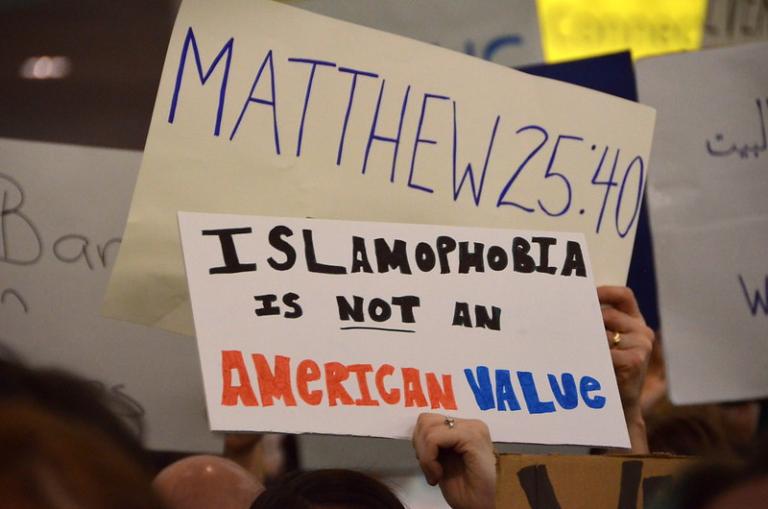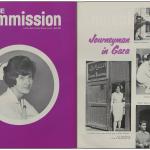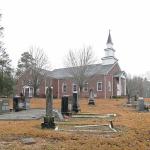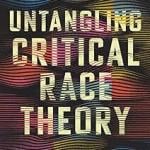
Last weekend, Wadea Al-Fayoume, a six-year-old Palestinian American boy in Illinois, was stabbed to death in his home. The alleged killer was his landlord, who stabbed him 26 times with “a military style knife” while shouting “you Muslims have to die” and “you are killing our kids in Israel. You Palestinians don’t deserve to live.” His mother, Hanaan Shahin, had repeatedly asked the attacker, “let’s pray for peace”; she, too, was stabbed and seriously injured in the attack. According to the sheriff’s office, the boy and his mother were “targeted by the suspect due to them being Muslim and the ongoing Middle Eastern conflict involving Hamas and the Israelis.” Federal authorities are investigating the stabbing as a hate crime.
The gruesome attack against Wadea and his mother appears to be part of a larger trend. The past two weeks have witnessed alarming acts of violence, harassment, and intimidation targeting Jews, Muslims, and Arabs in the United States. In Boston, signs at the Islamic Seminary of Boston and the Palestinian Cultural Center for Peace were vandalized, and in San Francisco, anti-Israel graffiti was sprayed on a store front. In Brooklyn, police reported that two Jewish men assaulted two other men bearing Palestinian flags, and that same day, two teenagers fired pellet guns outside congregation B’Nai Yosef. The FBI, which tracks hate crimes, noted that it “has seen an increase in reports of threats against Jewish, Muslim, and Arab communities and institutions,” and the events of the past two weeks prompted the Department of Homeland Security to warn that “[t]argeted violence attacks may increase as the conflict progresses.”
Jewish, Muslim, and Arab Americans are afraid. “It feels like pure panic mode the community is in,” said Mitch Silber of the Community Security Initiative, a group that focuses on antisemitic activities, in the New York Times. And Linda Sarsour, a prominent Arab American activist, told CNN that Muslim and Arab Americans “are experiencing a lot of anguish, a lot of fear, and a lack of safety” and advising one another to take extra precautions. “One of the things that’s always the saddest for me is when people start giving each other advice about not going out alone,” she said.
There’s much to be said about violence and hate and fear in the Middle East–but that’s not my focus today. Instead, I want to talk about violence and hate and fear here in the United States. The rise in targeted acts of violence, intimidation, vandalism, and harassment–a trend that predates the start of the Israel-Hamas war earlier this month–is a longstanding problem that our nation must confront. According to FBI data released last week, over 11,000 hate crimes were reported in 2022, 7% more than in 2021 and more than double the number of hate crimes reported in 2014.
For the past three years, hate has been the focus of my research and community activism. In fact, it was the stabbing of another six-year-old child that spurred my work on this topic. In March 2020, at the start of the Covid-19 pandemic, this child, along with his sibling and his father, were attacked at a Sam’s Club in Midland, Texas. According to law enforcement, the assailant had targeted the family because they were Asian and because he saw them as a “threat,” believing they were “from the country who started spreading that disease around.” Shortly after, the FBI warned that the scapegoating of Asian people for the pandemic could trigger a rise in anti-Asian attacks, and that is indeed what happened: 2020 and 2021 witnessed an alarming surge in hate crimes against Asian Americans. And so, as an Asian American studies professor who was concerned about the safety of my community, I threw myself into researching this problem. Over the past few years, my research team has documented hundreds of anti-Asian incidents of violence, harassment, and discrimination reported in the news. I’ve heard the stories of many Asian Americans who feared for their safety when riding public transit, going to school, or visiting the grocery store. And I’ve spent just as much time talking with scholars, community activists, government officials about how we can make our communities more safe, just, and inclusive, not just for Asian Americans, but for all groups that have historically been targeted in attacks.
As we grapple with the surge in attacks against Jewish, Muslim, and Arab Americans, here is what I think we need to know, based on what I’ve learned in my research:
First, we need to recognize that specific events that draw negative attention to a particular group–for example, a war, a major political development, or a global pandemic–often coincide with attacks and threats against those groups. Philip Bump at the Washington Post made this point last week, showing, for example, that hate crimes targeting LGBTQ+ individuals increased after 2020, around the time that conservatives intensified their activism and rhetoric against them. The Israel-Hamas war, its utter brutality, and the polarization around the issue of Israel and Palestine are all a critical context for understanding why Jewish, Muslim, and Arab Americans are experiencing targeted attacks and are vulnerable in the current moment.
At the same time, we need a broader historical perspective about racial and religious hate in the United States. The attacks on Jewish, Muslim, and Arab American in the past two weeks are the latest chapter of a long and ugly history of antisemitism and Islamophobia in the United States. As I’ve regularly noted in my work on anti-Asian racism, the Covid-19 pandemic did not cause the problem of anti-Asian racism, but resuscitated and reformulated “yellow peril” fears that had existed in the United States for centuries. Similarly, antisemitism and Islamophobia are pervasive and deeply rooted in American culture: expressed in our nation’s policies, reinforced in the media, and propagated in the rhetoric of some of our nation’s most prominent leaders. And while many Americans may argue that the United States is more tolerant than it has been in the past, the progress, if there has been any, has not been linear. As FBI data shows, hate crimes against American Jews had declined during the pandemic but rose again between 2021 and 2022.
Putting the attacks of the past two weeks in a larger historical context is important not only for understanding the enduring problem of antisemitism and Islamophobia, but also for making sense of how Jewish, Muslim, and Arab Americans are navigating this particular moment. As Daniel Seidemann argued, attention to historical experiences of trauma is critical for understanding the current war between Israel and Hamas. “For both sides, the events of the past 10 days have evoked memories of their worst national suffering,” he wrote. Pointing to the Holocaust for Israelis and the Nakba for Palestinians, he noted that “this war has surfaced fears, always lurking just under the skin, that history could possibly repeat itself.” The lens of historical trauma is similarly useful for understanding events unfolding in the United States. For American Muslims, the killing of Wadea Al-Fayoume and other acts of Islamophobic violence, harassment, vandalism, and intimidation have brought back memories of the days after 9/11. Aber Kawas, a member of the U.S. Campaign for Palestinian Rights, told CNN that “Palestinian Americans and Muslim Americans feel like they are experiencing the level of hate and Islamophobia that existed after 9/11 and during the Iraq war – some say it’s even worse.” And for American Jews, events in the United States during the past two weeks have rekindled the grief, fear, and pain associated with brutal attacks targeting their community, such as the mass shooting at the Tree of Life synagogue in Pittsburgh in 2018. Listing numerous instances of antisemitic violence, vandalism, and intimidation in her community and across the country, the Washington Post columnist Petula Dvorak expressed concern about what these incidents foretell of the future, saying, “these signs are terrifying. And I fear they’ll just increase.”
As a matter of principle, nobody deserves to live in fear. More practically, fear can often drive people to make decisions they would otherwise not make–decisions that might even undermine safety, even though safety might be the ultimate goal. To offer one illustrative example, let me return to the case of Asian Americans facing Covid-related racism. During the pandemic, Asian Americans began to buy guns in record numbers, often due to fears of racist attacks. Tsu-Yin Wu and Hsing-Fang Hsieh, researchers at Eastern Michigan University and the University of Michigan, found some disturbing patterns in Asian American gun ownership and their perceptions and experiences of racism: Asian Americans who experienced more racial discrimination were likelier to buy guns and more ammunition, and high percentages of these gun owners reported that they stored their guns loaded (43%) and unlocked (47%). Although it has only been two weeks since the Hamas attack, some early evidence suggests that American Jews, while generally supportive of gun control, are doing something similar and purchasing firearms at higher rates. Henya Chein, an Orthodox Jewish mother in Florida, told NBC News that she felt “forced” to take a firearms class at her synagogue “because Jewish people are not safe anywhere now.” Muslim gun owners fearing Islamophobic attacks have used similar logic when explaining their decision to acquire firearms. “We’re not gun owners because of Islam,” explained Hassan Shibly, executive director of the Florida chapter of the Council on American-Islamic Relations, in a profile in the New York Times in 2018. “We are gun owners because of the violence perpetrated in this country against minorities.” Whether guns contribute to increased safety or danger is a topic for another day, but the point is this: Jewish, Muslim, and Arab Americans, feeling afraid in a climate of escalating tensions and violence, are turning to measures that they’ve often rejected in the past. Hate and fear are driving them to places they hadn’t expected to go.
In these fraught and fearful times, it is imperative that we all do our part to address the antisemitic and Islamophobic hate that continues to plague America. I don’t pretend to have any clear solutions to the alarming rise in acts of targeted violence and harassment, but I offer at least this starting point, which is informed by my research over the past three years: we need to begin by intentionally recommitting ourselves to the shared goal of cultivating safe and inclusive communities where our diverse neighbors do not have to live in fear. In our day-to-day lives, we must choose our words wisely and resist rhetoric that erases, diminishes, or dehumanizes others. We must be mindful of how we view one another and choose to recognize the shared humanity and the inherent worth and dignity of all of our community members. And we must do our part to care, support, and show kindness to our Jewish, Muslim, and Arab American neighbors who are grieving and afraid: offering to escort somebody if they’re concerned about going out in public, familiarizing ourselves with the ways to report hate incidents on our campuses and in our communities, taking a bystander intervention training so we’re ready to intervene if somebody is experiencing harassment.
Ultimately, if we want a safe and inclusive community that reflects our highest values and where our neighbors are treated with respect and dignity, we must all take responsibility to build it. In these dark days, when so much is being destroyed, can we create something different?













